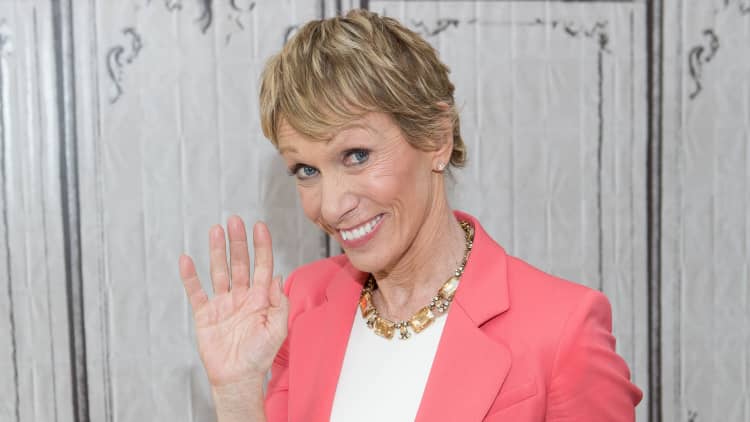If you're job hunting, odds are you've spent a significant amount of time perfecting your resume, tightening your writing and shrinking margins to confine your wealth of experience and unique skill set to a single page.
But new research finds that such efforts may not give job seekers the edge they expect. That's because recruiters, surprisingly, were 2.3 times as likely to hire a person who submitted a two-page resume over someone with a similar one-page resume.
The study, conducted by ResumeGo, a resume and CV writing service, asked a mix of 482 recruiters, hiring managers, human resource professionals and c-suite level executives to review one-page and two-page resumes for candidates with similar skill sets, education and experience for a variety of positions up and down the corporate ladder. Both the resumes and job descriptions used were based on real candidates and job openings.
What ResumeGo found was, despite conventional wisdom that hiring managers and recruiters lose patience with longer resumes, the hiring professionals chose two-page resume candidates over their one-page competition most of the time — and this preference got stronger the more senior the role they were looking to fill.
Out of the 7,712 resumes that were selected for hiring, well over half, 5,375, were two pages.
"What frustrated me when I first entered the resume writing industry was experts throwing around pieces of wisdom without having any real data to support the advice they gave beyond their own personal experience," says Peter Yang, CEO of Resume Writing Services, parent company of ResumeGo, who designed the study to try to empirically settle the debate over resume length. "Traditionally, many people recommend sticking to a one-page resume, except in special circumstances, like if a candidate has lots of experience and has held multiple jobs, so we were surprised by what the data said."
Entry-level candidates were the least likely to have their resume length help or hurt their odds of being hired. The study found that rookies with longer resumes were chosen 58 percent of the time vs. 42 percent for one-page applicants, making two-page resumes 1.4 times more successful.
Mid-level job candidates, however, were 2.6 times as likely to get hired if they handed in a two-page resume, with 72 percent of these roles being awarded to applicants with the longer resumes.
But where it really pays off to go long is with managerial-level jobs. Recruiters were 2.9 times as likely to award these kinds of roles to two-page resume applicants, and did so 74 percent of the time.
Yang said one of the reasons he feels the two-page resumes outshone the one-page ones is the sheer amount of detail that could be conveyed with the additional page. One-page resumes typically contain 350 to 500 words, while two-page resumes are between 700 and 850 words.
"Most hiring professionals are focused on specific skills or credentials. For candidates with similar backgrounds and skills, providing more info can act as way to separate themselves and appear to be a better fit," says Yang. "In many cases, strong candidates, who do have more experience, write two-page resumes so hiring managers may have developed a subconscious link between strong candidates and longer resumes."
In the study, hiring professionals also evaluated each resume they read on a scale of one to 10 for its ability to summarize a candidate's work experiences and overall credentials. Two page-resumes scored 21 percent higher, with an average rating of 8.6 as compared to 7.1 for one-page resumes.
Recruiters spent nearly twice as much time reviewing two-page resumes, as well. In the simulation, the hiring professionals were timed as they scanned each resume. They spent an average of four minutes and five seconds with the two-page documents. One-page resumes were read for two minutes and 24 seconds, on average.
If those times seem long, they are. Other research has shown that recruiters spend a mere six seconds, on average, with each resume. That discrepancy likely comes down to the fact that ResumeGo limited the number of resumes its recruiters had to review to a small handful. Whereas in real life and other studies, recruiters could evaluate 200-plus applications for a single position.
This means two-page resumes can help you secure the job, once you've made it to a very final round of resume reviews where you're one of a handful. How helpful they are in getting you past initial knockout stages or through an online application's screening algorithm remains untested.
Yang speculates that two-page resumes could still provide an edge when using online application systems, though, because of keyword tracking.
"A lot of time people will cut down their resume or leave out some experience or skill to keep the resume to one page, especially if their initial draft took up a page and a half," says Yang. "Because these application programs are designed to scan for keywords and certain skills, cutting down could mean missing out on a chance to mention something the computer system is looking for."
But this research doesn't mean all job seekers should write two-page resumes. A key factor influencing the outcomes in this research says Yang is that all resumes used were strong, relevant, well-written examples. Adding irrelevant information or writing verbose sentences to pad a resume out to two pages won't produce the same positive effects.
"If your resume is naturally a single page or you're an entry-level worker who doesn't have a lot of relevant experience or skills yet, there is no need to add for the sake of lengthening the resume," says Yang. "Rather, the research suggests, if you have more experience and need a longer resume, you do not need to cut it down to a single page. You can paint a more complete picture of yourself."
Like this story? Like CNBC Make It on Facebook.
Don't miss: 7 commonly misused words that could ruin your resume



